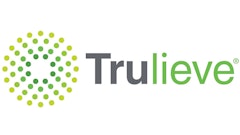
 Scott_jordan
Scott_jordan
by Scott Jordan
I have listened to hundreds of financing pitches from marijuana and non-marijuana business owners, and everyone has made one or more of the following mistakes. If you want to increase your chances 10-fold of securing the funding you need, while not wasting your time presenting to the wrong person or source of capital, avoid these 5 most common mistakes business owners make when seeking funding. (Plus, check out my bonus tip at the end of the article.)
1. Not asking the right questions before you start your presentation.
a. Every funding source has a set of criteria they are looking to invest in or lend on. Lenders look at things 100-percent differently than investors do. A lender, by nature, wants to get his/her money back with regular payments over a period of time at a set rate. They need to hit a lot of “singles” and make very few mistakes.
An investor is looking to hit a home run one out of every seven to 10 times and is expecting to have to wait for an exit event in two to five years. Two different mentalities–and you need to know which you are dealing with, tailoring your pitch to each. Hence you need a pre-meeting before you present to them. For example: In online dating, a quick meet and greet for coffee, or a drink before a dinner date or a concert would be a wise way to see if your interests are aligned and if there is any chemistry.
b. Some of the questions you should ask are:
- Are you a lender or an equity investor?
- What have you previously invested in or loaned on?
- What are you looking for in an investment or a loan for it to be attractive now?
- When are you expecting the return of your money, and how much are you looking for?
- How much do you have allocated for investment in the marijuana space?
- What are you hoping to achieve (return on capital, medical breakthroughs)?
- Can you offer any other benefits besides your money to help my business grow?
- What contacts do you have that would be valuable for me?
- What sort of involvement do you want in the day-to-day business?
- What sort of reporting are you looking for?
2. Launching into telling me how great your product is before I know how much you are looking for and other critical issues.
a. Watch "Shark Tank," and notice how all the openings are alike. How much money they want, how much equity they will give up, what problem they solve, etc.
b. Like dating, don’t start to tell me how great you are before you engage me in what I am looking for. I have an ego, perhaps larger than yours, and when you just start into a pitch, we are not engaged at all, and therefore, I am turned off before you have started.
c. Find some common ground. Go on Linked in, Facebook, my web site, Google me, see where I went to school, who my connections are–find out something about me, and show me you have done some research on me and that I am special. Just like a job interview, know who you are talking to and do some research, don’t just show up with your presentation package.
d. Every funding source has an “underwriting box,” i.e., criteria we are looking for, in order to engage and listen to your pitch. If yours does not fit then quit right there and don’t waste both of our time. Smart presenters then ask, “Since this does not look like a fit for us, who else do you know that might be a better fit for funding my business?”
3. Telling me you grow the best product without proof or samples.
a. If I have heard this once, I have heard it 1,000 times: Everyone tells me they grow the best marijuana. Show me why yours is better, and whether it is for recreational use or medicinal purposes. Show me samples, and show me your product and why yours is the best.
b. What I am more interested in is how much it costs per pound to grow and if you are looking to expand your grow, and how much more efficient you will be?
c. Better yet, show me some independent results or data. Cannabis Cup awards help, lab numbers help. Don’t just tell me you grow the best without showing me some proof. Yelp or WeedMaps reviews at least.
4. Not understanding my criteria and what I am looking for.
a. See number 1a: Have a pre-pitch meeting where you talk to me like a first meeting before a date. Is there chemistry? Do I feel comfortable being financially intimate with this person? Who are you, and what are you looking for? What investments have you made in the past in this industry? Unless they are friends or family, I have never seen someone who has not previously invested in the marijuana space invest for the first time. Chances are they are picking your brain and wasting your time.
b. Who else is involved in making the decision to invest? The investor's wife, mom, business partner? Find out first in the pre-meeting; you should interview them as much as they interview you. Make sure your interests are aligned. Similar to dating, if they are fresh out of a long-term marriage and you are looking to get married and have kids soon, there is probably not going to be a match, even if you both are single and in the right age range. It’s called a “rebound” relationship, and they can be fun, but may not meet your long term goals.
5. Tell a lender you will not personally guarantee a loan.
a. To tell a debt-based lender that you will not personally guarantee a loan you may as well go through the airport with a gun in your pocket and expect to get through security. That is death to lender and just not going to happen in the marijuana industry.
b. What this says to a lender is it’s Ok for me to risk my hard earned money, but if something happens unexpected (and it will happen 100-percent of the time, revenue always takes longer and expenses are always higher than projections), you are not going to put your assets on the line to repay the debt. As they say in New York …”Forget about it” … there is no chance of that being acceptable.
Bonus Mistake
6. Not having your financials and knowing the rest of the numbers that are important to a funding source.
A debt-based lender is going to be interested in different numbers than an equity-based lender, but there will be some overlapping. Here is what is important to a debt-based lender:
- Your credit score and the principal’s credit scores. If they are low, why are they low? It is best to get it fixed beforehand and have a copy of your report or the score if it is good. It shows credibility, and that you are prepared and professional.
- Your personal financial statement and what other assets you own.
- Cash flow from the business to repay the debt.
- Debt schedule within the business, and who you owe and when that money is being repaid, as well as who are the senior lenders? Will the existing lien holders subordinate to a new loan?
- Do you have a bank account, and what flows through that bank account?
- Do you have a merchant account, and what flows through that merchant account?
Scott Jordan has been funding marijuana businesses since 2009 and has unique knowledge for helping marijuana business owners obtain the money they are looking for. He is an author and speaker about the subject of funding in the marijuana space and an expert in non-bank financing options. He is currently the Director of Business Development for Dynamic Funding Inc., an 18 year-old company located in Englewood, Colo. He can be contacted at [email protected].
[Feature image by Svilen Milev]

























